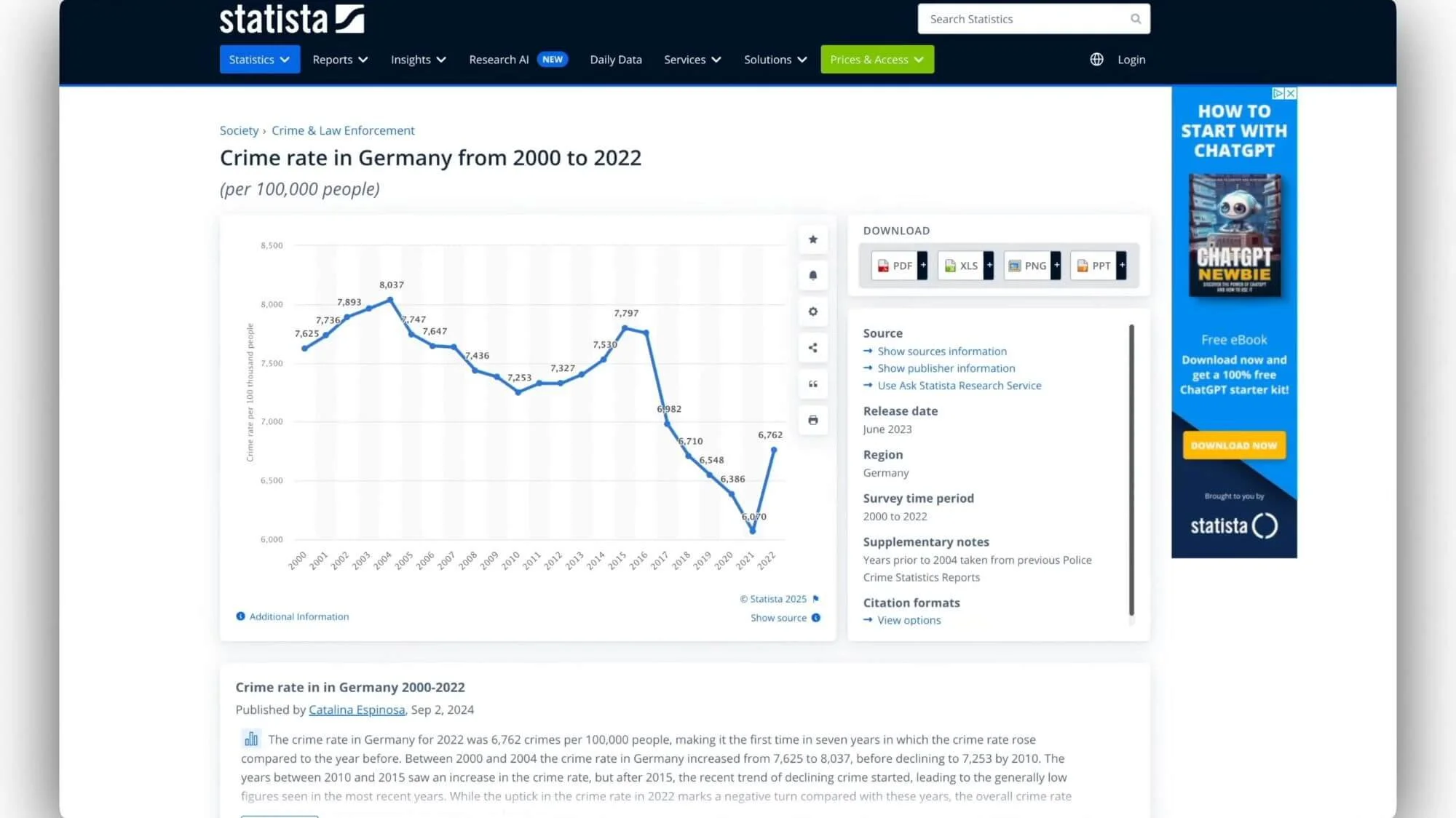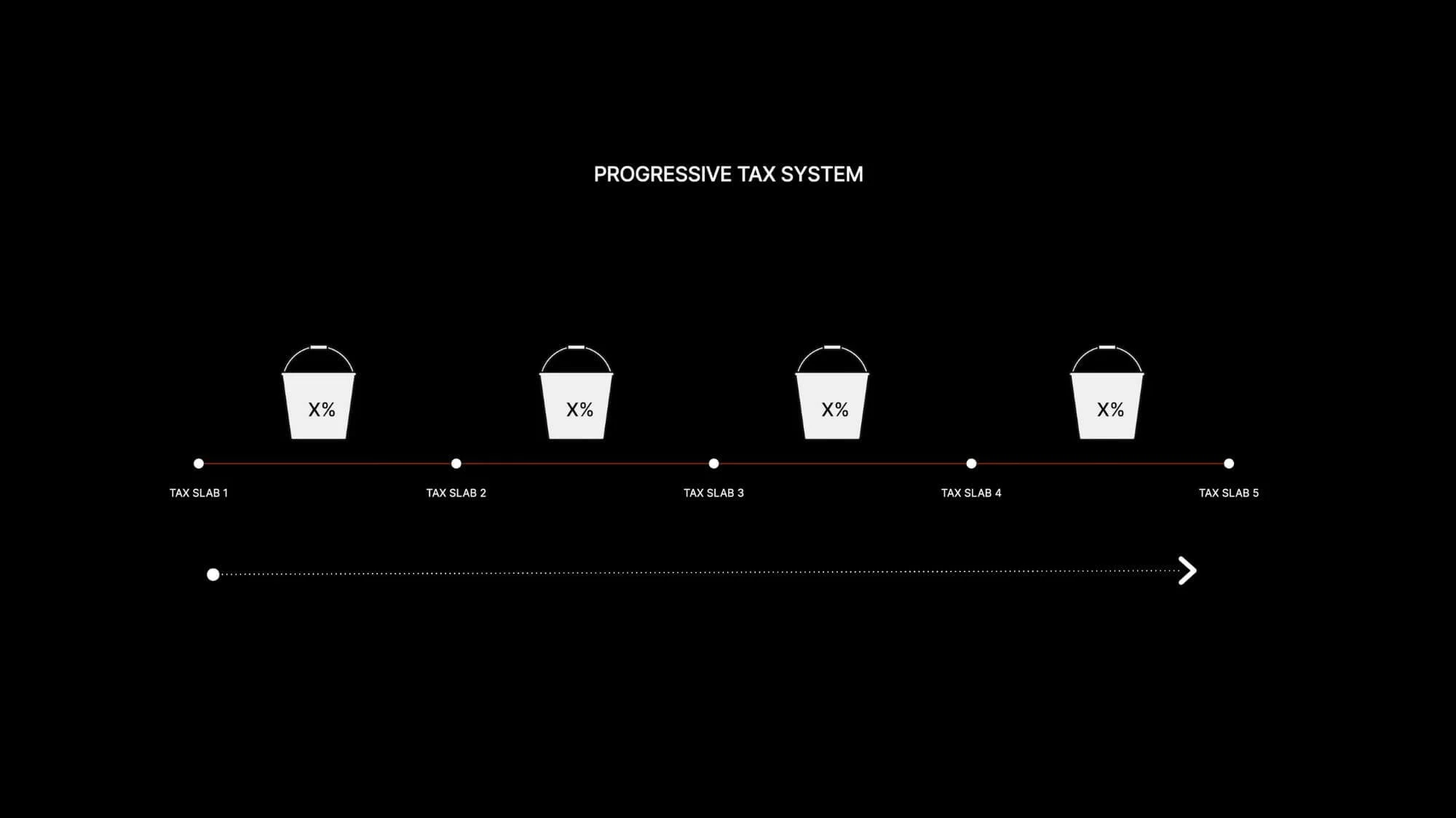10 Reasons to Move to Germany (And 5 Reasons You Shouldn't)
Germany has a lot to offer if you’re looking to build a career here—a high standard of living, social security, healthcare, education, and more. But let’s be real, this country might not be everyone’s cup of tea. There are some challenges that can make things harder, especially when you’re just starting out.
So, before you decide to leave your full-time job, family, and friends to move to Germany, take a moment to read this article. I’ll break down real facts and figures to help you figure out if moving to Germany is the right choice for you and how it could impact your life.
About 20 million people with a migration background live in Germany. This makes it the second-largest migrant population in the world, after the US. When I moved to Germany in the winter of 2012 with only basic German knowledge, let me tell you, it wasn’t easy at all.
There were moments when I even questioned my decision to come here. However, now, after more than 10 years, I’ve come to appreciate and love many aspects of living in this country.
Pros
German Economy
Germany is the fourth-largest economy in the world. When you see a product with the label “Made in Germany,” it's a guarantee that this product is of high quality. That’s why German goods are always in demand. And this makes Germany the third-largest exporter globally. A strong economy means a lot of job opportunities, high salaries, and ultimately, a high standard of living.
2. Work-life balance
Let’s talk about one benefit, that I value the most: work-life balance. Germany has very strict labor laws and working hours are limited to 10 hours a day or 48 hours per week. Nobody expects you to stay late just to show you’re hard-working. Most people work from nine to five, leave on time, and, most importantly, don’t take their work home. And on top of all that, employees get at least four weeks of paid vacation and unlimited sick leave, so there is plenty of time to relax and recover when needed.
3. Job Security
Most companies are legally required to have workers’ unions. This guarantees that interests and concerns of employees are heard and considered. Additionally, employees are protected against unfair dismissal and it’s not easy to fire someone without a valid reason.
But let’s say you lose your job or you’re no longer working. In Germany, the social security system is designed in such a way that no one ends up completely broke or homeless. For example, if you lose your job, the government provides financial assistance for at least three months, sometimes longer, and also helps you to find a new one. And when you retire, the statutory pension scheme provides the financial means to support yourself.
4. Healthcare system
Germany has a universal healthcare system, which means everyone has access to the full range of quality health services they need, when and where they need them, without financial hardships. This is made available through either public or private insurance, which covers the costs of medical care and necessary medications.
Hospitals and clinics in Germany are well-equipped and are staffed with highly trained professionals. So it's guaranteed that you get top-quality medical care.
5. Education
Germany is a country that puts a high value on education. And this is reflected in the number of innovations and patents the country produces. It’s also one of the few major economies that offers free education from schools to public universities, and that too even for international students. Because of this Germany comes as a top choice for those looking for high-quality, affordable education. On top of that, Germany has many international schools where English is the main medium of teaching. This makes it easier for children from other countries to adapt to the German education system.
6. Public Transport and infrastructure
When I first arrived in this country, one of the things that caught my attention was the efficiency of the public transport system. Most cities offer excellent last-mile connectivity with a network of buses, trams, and subways. And for those who prefer an eco-friendly mode of travel, there are also dedicated bike paths.
Additionally, German trains are known for being fast and punctual, so you can travel between major cities in just a few hours. And if you book in advance, the prices are reasonable. For regular commuters, there is also the option to get monthly passes that are cost-effective. For those who love driving, Germany is a paradise. The country’s autobahns are world-famous for having no speed limits on certain sections, and the driving culture is generally well-mannered and respectful.
7. Safety and Security
One thing you’ll notice as soon as you get to Germany is how safe and clean it is. The crime rates are really low, so you’ll feel safe living here. And when it comes to waste management, Germany takes it to a whole new level. There are so many types of waste separation, and yeah, it can be a bit overwhelming at first, but it really makes a difference. As a result, cities are clean and well-organized, and hygiene standards are pretty high.
Also, the value of life is taken very seriously here. For example, a couple of years ago, there was a fire alarm in my apartment. Within minutes, multiple fire engines and police were at the doorstep. Luckily, it was a false alarm, and nothing bad happened. But one thing became clear to me. This is a country that truly prioritizes public safety and well-being.
8. Family Friendly
Just like most developed countries, Germany too has a very low birth rate. And to address this, the government has introduced several steps to support those who want to raise children and build a family here. New parents in Germany get up to 14 months of partially paid parental leave, so they can spend more quality time with their newborn without worrying much about the finances.
On top of that, families also receive Kindergeld. This is a child financial allowance scheme created to help cover the costs of raising kids. Also when it comes to raising a child, education is free and every neighbourhood has well-maintained parks and playgrounds for family outings and fun activities.
9. Easy Immigration Policies
Germany is dealing with a huge shortage of skilled workers right now—It is estimated that, there are about 1.8 million open positions! And it’s only going to get worse. Thanks to the country’s aging population. To fix this, the government has introduced measures like the Opportunity Card (or Chancenkarte) to make it easier for people to move here and work.
According to this, anyone with vocational training or a degree can come to Germany and search for a job for up to one year. So honestly, if you’ve been thinking about working in Germany, now’s a really good time to consider making the move! I have made an entire video about the Opportunity card and how you can apply for one. You can watch it here.
10. Citizenship
Once you have been living in Germany for some time, it's not that difficult to get permanent residency (PR) and even citizenship. If you have a job, you can apply for PR after two years with a work permit. Under certain conditions, you can get it in as little as 21 months. And with the recent changes in the citizenship process, you just need five years of residence in Germany to be eligible to apply for a German passport.
Cons
It's true that Germany offers many benefits for someone who wishes to move and settle here, but like any country, it comes with its own set of problems. And one of the biggest challenges is how difficult it can be to integrate into German society.
Integration
Many people find it hard to make friends with Germans. There’s a common belief that Germans are cold, but that’s not true. They just aren’t as into small talk or casual chit-chat as some other cultures.
A big part of the challenge is the difficulty of learning and speaking German. If you find yourself in larger cities and international companies, you can easily survive with English. But knowing German is important, especially for jobs that involve public dealings, and even for everyday tasks like doing some government paperwork or doing your local grocery shopping.
There also exists some level of racial discrimination. Major cities like Berlin and Munich are generally more immigration-friendly. However certain areas can still be less welcoming to people from different ethnic backgrounds. That said, I find the younger generation of Germans more open and welcoming.
2. Weather
I come from a tropical country, so when I first came to Germany, I was fascinated by snow. With winter sports and Christmas markets, winter in Germany can feel absolutely magical.
But there’s also a less cheerful side: winter depression. It’s pretty common here, even though people don’t talk about it much. Some days, you hardly see the sun, and it’s normal to feel sad, low on energy, and fatigued. On really bad days, the snow, ice, and wind can bring everything to a stop. And this further adds to the frustration.
3. Accommodation
When it comes to housing, Germany has a demand-supply problem, where the demand far outweighs the supply. So if you are in search of an apartment for rent or to buy, be prepared for long queues and high prices. Especially in major cities like Munich, Frankfurt, and Berlin, where it is not only expensive but also hard to find.
For example, renting a one-room apartment in the center of Munich can cost around €1,400 per month, while in Heidelberg, a similar apartment averages about €1,000 per month. So most people, especially newcomers or those on a limited budget find it difficult to find affordable housing.
4. Taxes and Bureaucracy
Germany has a progressive tax system. This means that those with higher incomes pay more taxes compared to those with lower incomes. For example, a 42% tax rate applies to individuals earning more than €60,000 annually. Although this also includes contributions to health insurance, retirement pensions, and other social services, many people feel that the overall tax burden in Germany is high compared to other countries.
German society places a lot of value on organization and strictly following the rules. Although this has its benefits, this also makes the German bureaucracy very complex and time-consuming. In the city where I live, people even queue up from 4 AM just to get an appointment at the foreign office. In fact, the paperwork can be so overwhelming that you might need to fill out a form just to apply for another form.
5. Political Uncertainty
With the rise of far-right parties like the AfD, immigration has become a highly politicized issue in Germany. Although the country needs foreign skilled labor to address its aging population, decisions on this topic are often driven more by emotions than by facts. This could make it challenging for those planning to move to Germany to work or settle permanently.
Is it worth it?
Now it’s time to answer the big question: With all these drawbacks and challenges, is it still worth moving to Germany? The answer really depends on your priorities and what you value in life. If your main goal is making money, countries like the US or Canada might offer higher income opportunities.
However, if you value work-life balance, social security, quality healthcare, and a family-friendly environment, then Germany could be the perfect fit for you.
What you need to be prepared for.
Moving to Germany means being ready to step out of your comfort zone, adapt to a new environment, and learn German. You’ll also need to welcome the fact that German culture might be quite different from your own. If you’re not prepared for these challenges, Germany might not be the best fit. If you’re thinking about moving to Germany, make sure to check out this video, where I explain in detail how you can make use of the newly introduced Opportunity card to find a job here.
Auf Wiedersehen!
Disclaimer: The Content is for informational purposes only, you should not construe any such information or other material as legal or other advice. It is important to do your own analysis before making any decision.

















